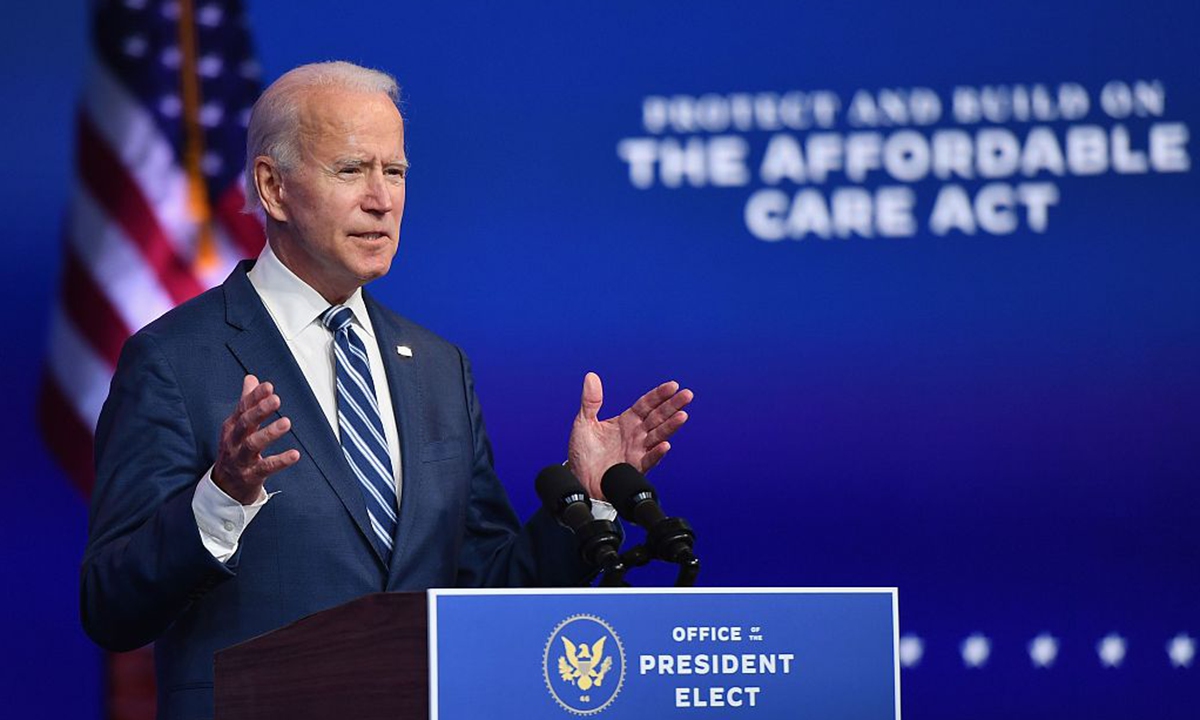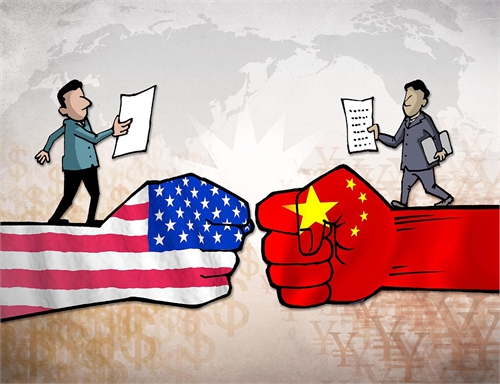As US enters Biden era, China looks to restore ties
Biden's picks 'more rational' but like 'iron fist in velvet glove': experts

Joe Biden. Photo: VCG
The US is entering the Biden era as the formal transition process begins and a slate of top foreign policy and national security nominees are picked, which Chinese experts said are familiar faces to China who will bring a rational and pragmatic approach for the future of China-US ties, but challenges remain.
Biden's top foreign policy and national security picks include Alejandro Mayorkas to lead the US intelligence community, Antony Blinken as the next secretary of state, Linda Thomas-Greenfield as the US ambassador to the United Nations and Jake Sullivan as Biden's national security adviser, CNN reported.
Biden's cabinet picks are likely to take a more rational and pragmatic approach toward China given their past experience in handling foreign affairs, Chinese observers noted. Despite the changing geopolitical environment, these veteran US officials are expected to return to conventional Democratic approaches to foreign affairs, which will be much more predictable, some said.
Ni Feng, director of the Institute of American Studies of the Chinese Academy of Social Sciences, told the Global Times on Tuesday that unlike the Trump administration, Biden's team is more likely to follow rules as they take a step-by-step approach to foreign policy. "His picks are more like an iron fist in a velvet glove that will place importance on tactics in dealing with other countries, including China."
Li Haidong, a professor with the Institute of International Relations at the China Foreign Affairs University, called the Biden team a group of "elites" and very "predictable" in foreign policy with a multilateralist mindset that will help restore US leadership and strengthen connections with allies, unlike Trump's approach, which combines people with little experience and extremists who deeply believe in protectionism and nationalism.
However, Sun Chenghao, a research fellow with the Institute of America Studies, China Institutes of Contemporary International Relations, noted that the fact that those who will serve under Biden are familiar faces doesn't mean the return of the Obama approach. "Times have changed. Facing the diplomatic legacy left by Trump, those old faces are likely to strike a balance between Trumpism and a return to the Obama era. 'Anti-China' is still a strong rhetoric in Congress."
After the letter from the General Services Administration was announced, Donald Trump affirmed the decision to start the transition in a tweet.
As the official power transition was announced, Chinese observers said the Chinese government will likely start restoring previous communications channels that were suspended under the Trump presidency, including pandemic cooperation, people-to-people exchanges and military talks. However, Chinese experts said a letter of congratulations from top leaders may not be sent until an official confirmation is made in December.
Chinese observers expressed hopes that talks between the two governments would resume, consulates would be reopened and normal communications between students, academics and journalists would be allowed. They believe that timely communications will prevent China-US ties from suffering a vertiginous drop.
"It's time to make official contacts with the Biden administration. I would say as early as possible," Li said, noting that "while the new president mulls his foreign policy, timely contact will help win back a stable and coordinated China-US relationship."
Sun told the Global Times that for Biden, the top priority is neither foreign diplomacy nor laying down policy on China, but dealing with the pandemic. "The US cannot fix the health crisis by itself. Cooperation between China and the US, especially under the WHO framework, would be a good start, such as regular talks among scientists and on the distribution of vaccines."
However, the familiar faces in the Biden administration will not eradicate the core issues on China, as the US sees China as a "strategic competitor with cooperation strength," Sun noted, especially on sensitive topics such as the South China Sea, Taiwan, and human rights.



